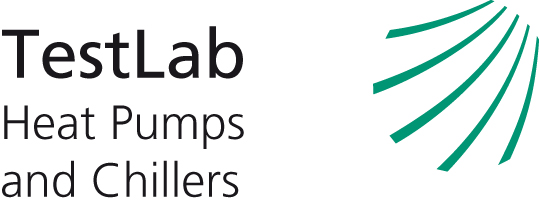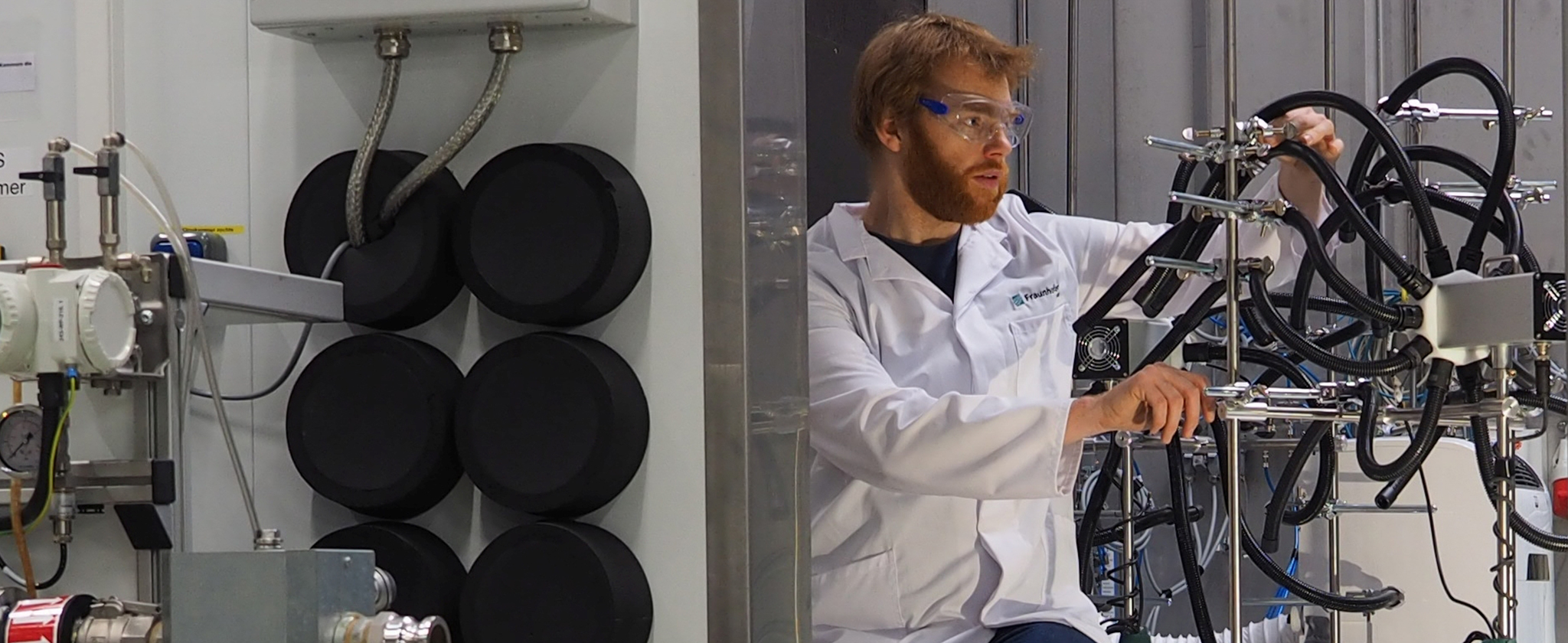
TestLab Heat Pumps and Chillers offers state-of-the-art technology for developing, measuring and characterizing heat pumps and chillers, as well as their components. The modular test rig concept makes it possible to test different types of technology and system configurations over a broad spectrum of operating conditions with different heat transfer media (air, water, brine). In addition to electrically driven systems with a connection power of up to 30 kW, thermally driven equipment – heat, natural gas or a test gas – can also be measured.
The laboratory is equipped with an integrated safety concept which allows components and systems with flammable refrigerants or ammonia to be set up and measured. Test objects with heating or cooling power of up to 100 kW (50 kW in calorimetric operation) can be measured in a calorimetric double climatic chamber at temperatures between -25 °C and 50 °C and air humidity values between 25 % and 95 %. In addition, the laboratory also has several conditioning units for water, brine and air, which can provide the relevant medium at temperatures from -25 °C to 95 °C in a power range up to 75 kW. In the three air-handling units, the air flow (80 m3/h to 5000 m3/h) can be conditioned in the temperature range from -15 °C to 50 °C and relative air humidity from 15 % to 95 %.
Systems can be measured in our laboratory according to all common standards and technical codes. The test lab has been accredited according to DIN EN ISO / IEC 17025 since February 2018. Beyond standardized methods, we cooperate with our clients to develop individual measurement procedures, which enable efficient and cost-effective development and optimization of devices and more complex systems by realistic, dynamic measurement sequences, including hardware in the loop. We also design and operate component-specific test stands (e. g. compressor test stand, diverse heat exchanger test stands), where advanced measurement and analytical technology from fluid mechanics, acoustics, vibrations and gas analysis is used to address specific questions (e. g. particle image velocimetry (PIV), Laser Doppler Anemometry (LDA), shadowgraphy, gas chromatography, scanning vibrometry).


